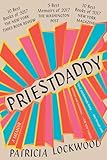There was no way for anyone to see it coming, of course—there never is. When the odd little microblogging service launched in 2006, it seemed like a nerdy joke, some bizarre configuration of the literature of constraint. What could be the point of trying to communicate in bursts of 140 characters? Twitter seemed like a novelty, a fad, a gimmick, a shiny toy that would dull quickly and be forgotten. Instead, it colonized the minds of millions of people, permanently altering the culture, spreading like some kind of digital kudzu, seeping down into the very neurons of whole classes and tribes of people. And this new medium proved particularly intoxicating for writers; writers and editors and journalists and critics and publishers and booksellers, all swimming in this strange new sea.
Fiction has always been slow to react to technological change, but it always eventually gets there. Newspapers, automobiles, telephones, movies, television, e-mail, and mobile phones have all been absorbed into, and subsumed by, the older technology’s capacious and appetitive flexibility. Twitter has, so far, proved singularly resistant. There is something liminal about it that makes it hard to translate cross-medium: it’s a mode of communication but also a space of performance; a so-called community forged out of collective isolation. It produces its own language, because when you try to explain things on Twitter to people who aren’t on Twitter, you invariably sound completely unhinged.
Given how comprehensively Twitter has re-wired our fundamental consciousness, it has seemed difficult to believe that no one has yet produced a book equal in expressiveness to its peculiar and otherworldly psychological glow. Olivia Laing’s novel Crudo, from 2018, came closest, but it was derailed by its flip conceptualist framework —it was a wry, Continental jeu d’esprit; clever but ultimately forgettable. As the narrator of Patricia Lockwood’s brilliant novel No One Is Talking About This puts it, all writing about Twitter “so far had a strong whiff of old white intellectuals being weird about the blues, with possible boner involvement.” Boner involvement or no, we suddenly have two novels, released within a week of each other, that brazenly, with swagger and open ambition, take on the voice of the bird app, and thus of our scrambled times.
 Lauren Oyler made her name as a literary critic, becoming notorious (well, in certain circles, anyway) for a series of Dale Peck-like hit jobs that betrayed a bracingly astringent sensibility, itself a form of authentic courage in our etiolated age. Although Oyler’s reviews were always more than mere bomb-throwing—they suggested the excrudescence of a rigorous, if somewhat retrograde, critical sensibility—one sensed the room’s temperature raising when Fake Accounts was announced. In the view of the simmering collective unconscious of which literary Twitter is the thermometer, if you are going to have haughtily high standards in your criticism, then you had damn well better be able to deliver when the knives are in someone else’s hands.
Lauren Oyler made her name as a literary critic, becoming notorious (well, in certain circles, anyway) for a series of Dale Peck-like hit jobs that betrayed a bracingly astringent sensibility, itself a form of authentic courage in our etiolated age. Although Oyler’s reviews were always more than mere bomb-throwing—they suggested the excrudescence of a rigorous, if somewhat retrograde, critical sensibility—one sensed the room’s temperature raising when Fake Accounts was announced. In the view of the simmering collective unconscious of which literary Twitter is the thermometer, if you are going to have haughtily high standards in your criticism, then you had damn well better be able to deliver when the knives are in someone else’s hands.
Judged in this context, Fake Accounts can only be considered an interesting failure: enjoyable and smart while somehow lacking that mysterious inner light that glows through great fiction. Oyler’s novel centers on an oddly Lauren Oyler-like protagonist who quits her job and is on the verge of breaking up with her boyfriend when things suddenly become interesting. The psychological complexities of this relationship, somewhat surprisingly, are depicted with subtlety and a degree of emotional heft—an oddly 19th-century facet at which to succeed. It’s like the oldest strut in the wheel somehow remains the most durable.
The main strength of Fake Accounts, though, is its narrator’s voice, which is intelligent, fearless, and witheringly amoral. Not-Oyler unleashes plenty of zingers (a description of “minds narrowed by therapy” has a droll Dorothy Parker ring), but she is also authentically insightful about Twitter—about how “it devours importance,” how it “muffles the sound of time passing without transcendence or joy.” Twitter comes to seem like an invisible third character in the book, one whose needs and rewards are as prickly and rebarbative as any romantic partner’s. Some of her riffs are inspired: a long car ride to the famous Women’s March on Washington with two earnest Hillary Clinton supporters is wickedly sardonic social satire, if faintly counter-revolutionary.
This is good stuff, but stylish asperity, unfortunately, does not a novel necessarily make. The book’s deficiencies become more apparent as it goes along, flattening out noticeably about two-thirds of the way through, unrelieved by anything like character development or indeed plot. There’s a disastrous foray into some modernist-lite experimentalism, and the book’s final twist feels forced and improbable.
 Like Lauren Oyler—with whom she is now, due to the caprices of the publishing schedule, permanently frozen in a lit-world pas de deux for all eternity—Patricia Lockwood writes regularly for the London Review of Books. Best known for her irreverent 2017 memoir Priestdaddy, Lockwood’s fiction debut is called No One Is Talking About This, and it is a home run. It is written in quick, agile bursts, and, like Fake Accounts, it’s smart and often extremely funny. Its emotional valence, however, is somehow darker, weirder, quicker; in place of Oyler’s hip urban bohemias, it has the gothic anomie, the mesmerizing nowhere-ness, of the Midwest. Lockwood once voiced a theory that “the surrealism that has overtaken the political landscape in America can be traced back to the poisoned ground of Ohio Facebook.” A similar kind of malevolent hum, barely discernible, lies beneath the freewheeling surface of No One Is Talking About This.
Like Lauren Oyler—with whom she is now, due to the caprices of the publishing schedule, permanently frozen in a lit-world pas de deux for all eternity—Patricia Lockwood writes regularly for the London Review of Books. Best known for her irreverent 2017 memoir Priestdaddy, Lockwood’s fiction debut is called No One Is Talking About This, and it is a home run. It is written in quick, agile bursts, and, like Fake Accounts, it’s smart and often extremely funny. Its emotional valence, however, is somehow darker, weirder, quicker; in place of Oyler’s hip urban bohemias, it has the gothic anomie, the mesmerizing nowhere-ness, of the Midwest. Lockwood once voiced a theory that “the surrealism that has overtaken the political landscape in America can be traced back to the poisoned ground of Ohio Facebook.” A similar kind of malevolent hum, barely discernible, lies beneath the freewheeling surface of No One Is Talking About This.
The tensile strength of Lockwood’s prose reminds one that she was, before she became a memoirist and critic, a poet, with the poet’s eye for detail and ear for the music of rhythm. The book’s structure, as a perceptive colleague of mine observed, uses Lockwood’s strengths—the wit, the quickness, the way with a startling turn of phrase—to their very best. The breathless, antic tone of Priestdaddy has been sharpened and honed, suddenly infused with urgency and heart. Lockwood’s vision of Twitter, which she refers to only as “the portal,” is tonally different from Oyler’s—a surreal funhouse rather than a numbing swamp—but she shares the latter’s sense of the absurd, and she is especially good at conveying the weird panopticonical menace that the portal comes to emanate.
The second half of No One Is Talking About This takes a sharp right turn that should not be given away but which vaults the book, unexpectedly, into the realm of the tragic and the sublime. (“Did not have ‘Patricia Lockwood’s novel makes you cry’ on my 2020 bingo,” I tweeted at the time.) Improbably, this restless, hyper-contemporary story accrues a kind of grandeur, melding somehow the new and the impossibly ancient into an emotionally seamless whole. “The doors of bland suburban houses now looked possible, outlined, pulsing — for behind any one of them could be hidden a bright and private glory,” Lockwood writes. The narrator is made an “instantaneous citizen,” she adds, “of the flash of lightning that wrote across the sky I know.” That “bright and private glory,” that knowing, is a form of grieving and, finally, of living, onscreen or off.
Image Credit: Pexels/Sara Kurfeß.
The post Bird Brain: Lauren Oyler, Patricia Lockwood, and the Literature of Twitter appeared first on The Millions.
Source : Bird Brain: Lauren Oyler, Patricia Lockwood, and the Literature of Twitter















